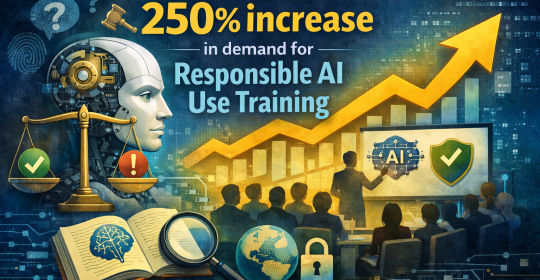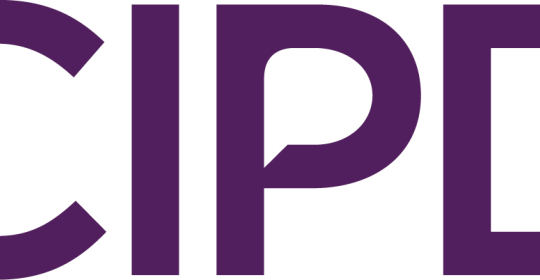Skillsoft (NYSE: SKIL), the platform that empowers organisations and learners to unlock their full potential, today released the results of its 2025 Global Skills Intelligence Survey. The findings reveal that widening skills gaps are now a top barrier to growth and that outdated approaches to talent development are leaving organisations unprepared to meet the demands of a rapidly changing economy.
In a global survey of 1,000 HR and learning and development (L&D) professionals across the U.S., UK, Germany, and Australia, just 10% say they are fully confident that their workforce has the skills needed to achieve business goals over the next 12 to 24 months, with leadership, AI, and technology identified as the most significant shortages. Nearly a third (28%) see skills as the key factor that could make or break their organisation’s growth.
Despite this urgency, many organisations are relying on talent strategies and development programmes that are outdated and disconnected from workplace outcomes. While 85% of respondents have talent development systems in place, only 6% rate them as “outstanding,” and just 20% believe their talent strategies are aligned with organisational goals. Less than a quarter (24%) are using a consolidated platform approach that provides a clear view of workforce capability, and respondents commonly cited pain points with their current solutions being fragmented, overly manual, and lacking customisation. These limitations make it difficult to measure skills, address shortages, and build the workforce needed for today’s pace of change.
“Business transformation depends on the strength, adaptability, and skills of the workforce,” said Ciara Harrington, Chief People Officer, Skillsoft. “These findings should be a wake-up call for every leader. Skills gaps are already impeding growth, and traditional approaches to talent development are only worsening the issue. To compete in today’s human-AI world, organisations must place skills at the centre of their strategy and evolve toward integrated platforms that connect learning, skills intelligence, and performance in a single place, unlocking a workforce ready for change and innovation.”
In the UK workforce, AI skills represent the most significant skills gap (30%), ahead of leadership and people management skills (26%) and technical skills (18%). Yet, the same areas are also the most exaggerated by UK talent - technical skills (20%), AI skills (19%) and leadership and people management skills (19%). The “overstatement” of skills is impacting UK businesses by exacerbating skill gaps (39%), reducing team cohesion (36%) and increasing manager stress (33%).Additional key findings from the research include:
Barriers to Transformation and the Talent Imperative
While organisations recognise the need for business transformation in this AI era, many face persistent barriers that put growth at risk and underscore the importance of stronger talent strategies.
-
Critical organisational challenges:
-
33% say employee engagement issues are not being effectively addressed
-
27% report their organisation is focused on the present rather than planning for the future
-
26% see employees promoted without adequate preparation
-
-
Future of work concerns:
-
37% fear losing top talent to more agile competitors
-
33% cite burnout as a barrier to transformation
-
24% worry AI is advancing faster than workforce upskilling
-
41% say their workforce is resistant to change
-
28% point to the need for greater technical expertise
-
AI adoption hurdles:
Smarter Business Decisions Start with Skills Intelligence
Even as leaders prioritise transformation, limited visibility into workforce skills can slow progress, reinforcing the importance of actionable skills intelligence.
-
Only 18% measure the success of their talent development programmes through the ideal method of regular skill assessments throughout the learning journey
-
49% see opportunity for AI to enhance skills intelligence solutions to deliver more accurate, actionable skill gap analyses
Reimagining Talent Development for an AI-Native Future
Organisations continue to offer a strong mix of traditional learning experiences, but many are now looking to AI-native capabilities to personalise development and better align talent strategies with business goals.
-
Most commonly offered learning experiences:
-
Online, video-based training (58%)
-
Group training scenarios (57%)
-
Mentorship opportunities (50%)
-
Live, instructor-led training (50%)
-
-
Desired AI-powered enhancements:
-
Adaptive training (43%)
-
Real-time feedback (42%)
-
Interactive simulations (38%)
-
Personalised learning paths (33%)
As workforce needs continue to shift, the research points to the value of connecting skills to every facet of business strategy. Leaders who understand their organisation’s strengths and gaps – and act on that insight - will be positioned to adapt faster, perform better, and stay competitive in a changing market.
Additional Resources
-
Discover more findings from Skillsoft's research here.
-
Visit Skillsoft at HR Tech in Las Vegas on September 16 at booth #1621.
Research Methodology
Skillsoft’s research survey was conducted online from May to July 2025 through the Pollfish platform. The survey yielded 1,000 complete responses from full-time HR and L&D professionals with a talent development programme in place (or set to be in place in the next 12 months) across various industries in the United States, United Kingdom, Germany, and Australia.
About Skillsoft
Skillsoft (NYSE: SKIL) empowers organisations and learners to unlock their full potential by delivering personalised, interactive learning experiences and enterprise-ready solutions. Powered by AI and strengthened by a broad ecosystem of partners, the Skillsoft platform helps customers solve some of today’s most complex business challenges including bridging skill gaps, improving talent retention, driving digital transformation, and future-proofing the workforce. Skillsoft is the talent development partner of choice for thousands of organisations – including 60% of the Fortune 1000 – and serves a global community of more than 105 million learners. For more information, visit skillsoft.com.






